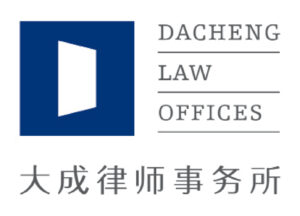Marine environmental pollution is a legal and sensitive social issue. The Bohai Penglai 19-3 oilfield oil spill incident is currently the hot topic of conversation. Since the discovery of the oil seepage in June 2011, while oil is continuing to leak, the legal measures to be taken against the operator, ConocoPhillips, are still in the “planning” stage. No civil compensation or criminal procedure had been initiated and the greatest possible administrative penalty would be a fine of RMB200,000 (US$31,000).
The incident is one of oil pollution caused by improper offshore oil development operations and possibly the greatest offshore oilfield oil spill accident in the PRC’s history.

Senior partner
Dacheng Law Offices Shanghai
Be that as it may, the main source of marine oil pollution is not oil spillage from offshore oil fields, but rather ship oil pollution, including oil pollution from refuelling and lighterage operations, ship oil bilge discharge and oil pollution arising from maritime disasters.
1969 convention
In March 1967, the Liberian flagged tanker, Torrey Canyon, struck a reef near the Isles of Scilly off the south of England, causing serious pollution, with the clean-up costs running to about £3 million. This accident directly led to the international community legislating on civil damages for ship oil pollution. In November 1969, the Inter-governmental Maritime Consultative Organization (IMCO) adopted the International Convention on Civil Liability for Oil Pollution Damage, 1969 at an international meeting on maritime pollution damage held in Brussels. That convention entered into effect on 19 June 1975.

Lawyer
Dacheng Law Offices Shanghai
Pursuant to the 1969 convention, a ship owner is subject to strict liability for oil pollution (regardless of whether it was at fault or not) although it may be excused from liability for a number of reasons, e.g. war, an intentional act on the part of a third party or negligence of any government authority responsible for the management of lights or other navigational aids. A ship owner is also entitled to limit its liability based on the ship’s tonnage.
Another feature of the convention is its making insurance mandatory for owners of oil tankers and entitling oil pollution victims to institute legal actions directly against insurers. The 1969 convention became effective in the PRC on 29 April 1980.
1992 convention
Subsequently, the International Maritime Organization (the successor to IMCO) amended the convention on several occasions. The convention as amended by a 1992 protocol is commonly called the International Convention on Civil Liability for Oil Pollution Damage, 1992. This convention greatly increases the limit on the liability of ship owners, while the scope of geographical application is also expanded to cover exclusive economic zones.
The ships to which it is applicable are no longer limited solely to ships actually carrying persistent oil, but are expanded to include oil tankers in ballast. The entities liable for oil pollution are reduced to ship owners and insurers, whereas other related entities (such as charterers, managers, operators, crew members and pilots) are excluded from liability. The 1992 convention entered into effect in the PRC on 5 January 2000, when the 1969 convention ceased to govern.
Judicial practice
In the PRC, the 1992 convention only applies to damage disputes involving oil pollution from ships of contracting states in which there is a “foreign element”, including damage disputes involving oil pollution in PRC territorial waters caused by PRC ships sailing international routes. As to damage disputes involving oil pollution in PRC territorial waters caused by PRC ships not sailing international routes, they are governed by the Chinese Maritime Code, the Protection of the Marine Environment Law and related administrative statutes. The limit of liability in such cases is determined pursuant to chapter 11 of the Chinese Maritime Code (see Official Reply [2008] Min Si Ta Zi No. 20 of the Supreme People’s Court). Accordingly, the PRC’s ship oil pollution damage system uses a two-track system with either the convention or domestic laws applying depending on the case.
In ship oil pollution damage cases, the focus of the dispute is generally the claimants and the scope of the claims. In terms of claimants, at present, the clean-up company lodges the claim for the clean-up costs, the Oceanic Administration lodges the claim for marine ecological environment losses; the fisheries and fishing port authority lodges the claim for fishery losses; and fishermen and other injured entities and individuals lodge claims for the property losses and income losses incurred as a result of the oil pollution.
There is no dispute, in law, over clean-up costs, environmental testing fees and actual fishery losses. Most often in dispute are the marine ecological environment losses and the medium and long-term fishery losses. In the Tasman Sea case tried by the Tianjin Maritime Court in 2004, although the Tianjin Oceanic Administration claimed marine environment capacity losses, marine ecosystem service function losses, marine sediment restoration expenses, tidal flat biotic environment restoration expenses, phytoplankton restoration expenses and nekton restoration expenses, ultimately, the court only supported the marine environment capacity losses. With respect to medium and long-term fishery losses, the Guangzhou Maritime Court denied such claims in the Minrangong 2 tanker and Haicheng tanker cases that it tried in 2000.
However, the Guangdong High Court held that medium and long-term fishery losses were actual existing losses and the definition of “pollution damage” in the 1969 convention that applied in both cases did not exclude such claims. Accordingly, it supported the Fisheries Administration’s claim. In the MMM Galveston tanker oil pollution case tried in 2009, the Qingdao Maritime Court also supported the claim for medium and long-term fisheries losses.
2001 bunker oil convention
The 1992 convention addresses oil pollution caused by oil tankers. As for international legislation on bunker oil pollution caused by ships other than oil tankers (e.g. bulk carriers), there currently exists the International Convention on Civil Liability for Bunker Oil Pollution Damage, 2001. The PRC has acceded to this convention, which entered into effect in the PRC on 9 March 2009. As with oil pollution from oil tankers, the PRC’s compensation system for ship bunker oil pollution damage is a two track system with either the convention or such domestic laws as the Chinese Maritime Code applying depending on the case.
Chen Weidong is a senior partner and Steven Zhou is a lawyer in the Shanghai office of Dacheng Law Offices

Dacheng Law Offices LLP, Shanghai
3/F China Development Bank Tower
500 Pudong South Road, Shanghai
Postal code: 200120
Tel: +86 21 3872 2401
Fax: +86 21 5878 6866
E-mail:
weidong.chen@dachenglaw.com
steven.zhou@dachenglaw.com
www.dachenglaw.com










